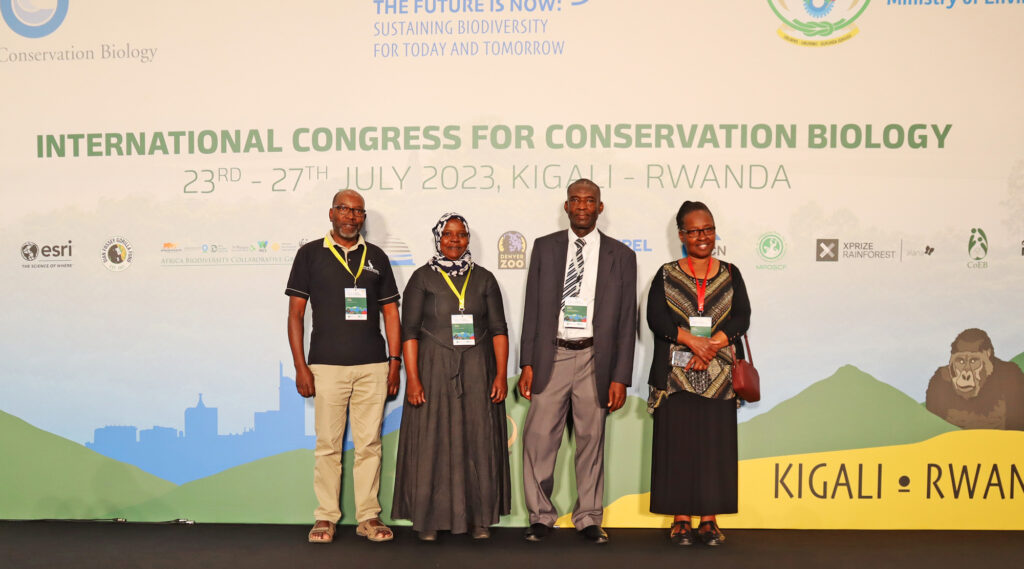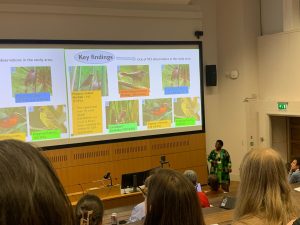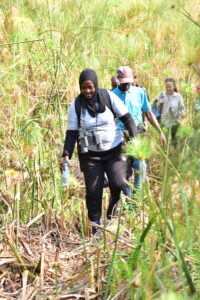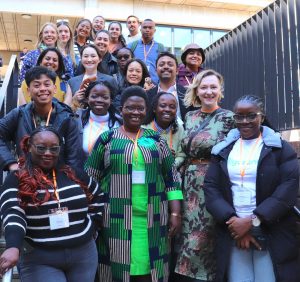Kabale University researchers who are involved in the Site Selection to Protect Papyrus Endemic Biodiversity in Uganda project (SEBU) recently attended the International Congress for Conservation Biology Conference in Kigali, Rwanda (ICCBC). As the SEBU’s principal investigator, Associate Professor Sarah Nachuha led the team. Other researchers were Dr Julius Arinaitwe, the coordination consultant, and Dr Fiona Mutekanga, who supervises the graduate students participating in the study.
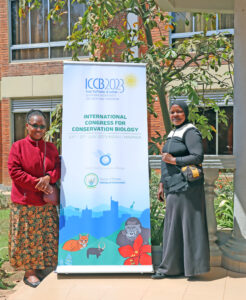 The KAB conference participants introduced the SEBU project to the international scientific community with the intention of raising awareness about it. Additionally, they also aimed to meet with other possible stakeholders that would help in actualizing the project deliverables.
The KAB conference participants introduced the SEBU project to the international scientific community with the intention of raising awareness about it. Additionally, they also aimed to meet with other possible stakeholders that would help in actualizing the project deliverables.
Besides presenting the project to the global community of scientists, conservationists, donors and policy-makers who convened for the International Congress for Conservation Biology, the KAB participants also tapped into the vast knowledge about the great lakes regions. The congress ran from 24th to 27th July 2023 at the Kigali Convention Centre. It was organized Under the theme “The future is now: Sustaining Biodiversity for today and tomorrow”, the congress is attended by 1,200 delegates from 90 countries. It was one of the many responses to the worsening state of biodiversity, which is now recognized as the most serious global crisis alongside climate change, with which it is highly integrated.
The conference was preceded by a pre-conference training workshop organized by the KBA secretariat. This was conducted from Saturday 22nd to the 23rd Sunday, July. Under the workshop, the participants were taken through the KBA process on how to identify globally significant sites to guide the conservation of 30% by 2030. This was facilitated by Jimmy Bezeng of BirdLife South Africa and Daniele Baisero of the KBA Secretariat. The workshop held at the University of Rwanda, College of Science and Technology – Nyarugenge Campus was insightful to the participants.
The discussion and interactions in the workshop added to the knowledge and improved the understanding of the KBA process for the participants. The criteria and the application of this KBA process will help in utilizing the resources drawn upon in the implementation of our JRS Biodiversity-funded project. The workshop was an overall success and will be an ongoing process of improvement. The Principal researcher Porf Sarah Nachuha is confident that the SEBU project will benefit from the insights gained from the workshop. Moving forward, they will use the training to continue in refining KBA process for maximum efficiency.
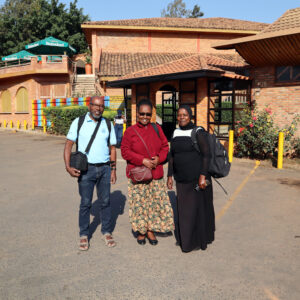 The other facilitators of the training include Laban Musinguzi, a research scientist at National Fisheries Resources Research Institute (NaFIRRI) and the GBIF regional node manager in the GBIF Processes and data structure. The key outcomes from this part of the training included an improved understanding of the process, templates and standards for data entry into GBIF; and how to download and use data from GBIF for our project needs.
The other facilitators of the training include Laban Musinguzi, a research scientist at National Fisheries Resources Research Institute (NaFIRRI) and the GBIF regional node manager in the GBIF Processes and data structure. The key outcomes from this part of the training included an improved understanding of the process, templates and standards for data entry into GBIF; and how to download and use data from GBIF for our project needs.
The SEBU researchers who participated in the training also made a poster presentation during the second poster session. This attracted very many delegates some of whom expressed interest for future collaboration in various ways including: engaging student and staff from other universities in research on wetlands conservation; use of DNA analyses to better track persistence, colonization and population health of endemic papyrus biodiversity; advances in using acoustics to remote monitoring, etc.
Following the conference presentations, the researchers also held a meeting with the ARCOS team at their offices in Kigali, Rwanda Kigali. Based on their experience with a previous JRS Biodiversity-funded project on wetlands biodiversity assessment and policy, the team provided insight into how to maximize the benefits of the SEBU project. The key outcomes included, an understanding of the integrated landscape monitoring system developed by ARCOS, and how it can be adapted to the Ugandan landscape; templates for capturing elements of the monitoring system; suggestion of including aquatic macro-invertebrates data in identifying KBAs; protocols and data sources for change detection analyses; and the importance of incorporating local government level advocacy into our efforts to enhance national and international recognition of KBAs.
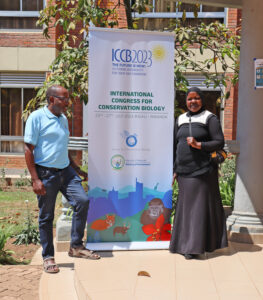 Researchers from the SEBU Project participated in the conference and were able to establish new contacts and broaden their networks. Among others, they also renewed old ones with scientists, donors, and staff of conservation NGOs that will support the broad aim of conservation of the highland wetlands in the Albertine Rift in Uganda.
Researchers from the SEBU Project participated in the conference and were able to establish new contacts and broaden their networks. Among others, they also renewed old ones with scientists, donors, and staff of conservation NGOs that will support the broad aim of conservation of the highland wetlands in the Albertine Rift in Uganda.
